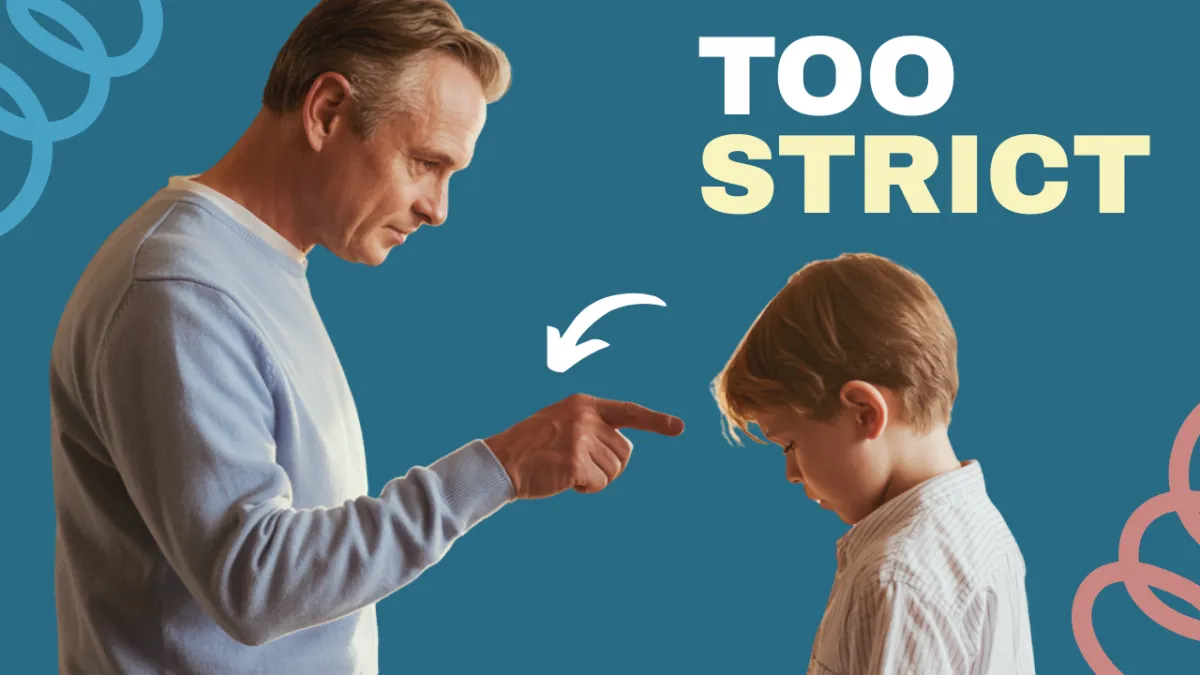
The Biggest Risk of Authoritarian Parenting


What if I told you that the parenting style designed to create well-behaved kids actually destroys the most important thing in your family?
It’s not about rebellion or disobedience. The real risk of authoritarian parenting is something far more devastating and often permanent.
As a clinical psychologist and mom of four, I’ve seen what happens when kids raised with “because I said so” parenting grow up. Today, I’m breaking down 4 hidden risks of authoritarian parenting that may change the way you think about discipline and control.
What Is Authoritarian Parenting?
Authoritarian parenting is often described as the “my way or the highway” approach. It’s characterized by:
High expectations
Strict rules
Low warmth and little explanation
Common phrases might include:
“Because I said so”
“Stop crying and get a hold of yourself”
There’s little room for flexibility or emotional expression, and mistakes are typically met with punishment rather than guidance.
While this method may produce obedience in the short term, it often leads to long-term emotional and relational consequences.
Risk #1: Emotional Suppression Over Emotional Regulation
Kids raised with authoritarian parenting often learn that their feelings don’t matter only obedience does.
Examples include:
A child who stops crying to avoid punishment
A teen who hides their struggles out of fear of being lectured
These children aren’t learning to manage emotions, they’re learning to suppress them.
And that creates a silent, internal world of anxiety, confusion, and emotional disconnection.
Risk #2: Short-Term Compliance, Long-Term Decision-Making Problems
Authoritarian parenting creates kids who follow rules when someone is watching, but don’t know what to do when they’re on their own.
Why? Because they’ve never been taught how to make good decisions only what not to do.
They follow rules out of fear, not understanding
They don’t internalize values
They lack confidence in their ability to evaluate choices
This becomes especially dangerous during adolescence and early adulthood, when freedom increases and supervision decreases.
Risk #3: Poor Emotional Intelligence and Social Skills
When kids aren’t allowed to ask questions, express emotions, or negotiate, they miss critical opportunities to develop:
Self-awareness
Conflict resolution
Empathy
Relationship-building skills
As adults, they may struggle in romantic partnerships, friendships, or workplace dynamics often toggling between over-compliance and reactive rebellion.
Risk #4: Damaged Parent-Child Relationship
This is the most heartbreaking risk and often the one that authoritarian parents never see coming.
These kids grow up to be adults who say:
“I respect my parents, but I don’t trust them.”
“They were always in charge, but I could never be myself around them.”
“We never had a real relationship just rules.”
Even if your child “turns out okay,” the connection between you may be shallow, strained, or nonexistent.
A Final Note for the Parent Reading This
If you’re reading this and recognizing yourself in these patterns, I want you to hear me clearly:
It’s not too late.
You can shift your parenting approach today. One step at a time.
And no, the alternative isn’t permissiveness or chaos. It’s called authoritative parenting, a style that combines structure with warmth, and boundaries with empathy.
Click here to watch the free Balanced Parenting Workshop
It’s never too late to strengthen your bond with your child and equip them with the tools they need to thrive.
